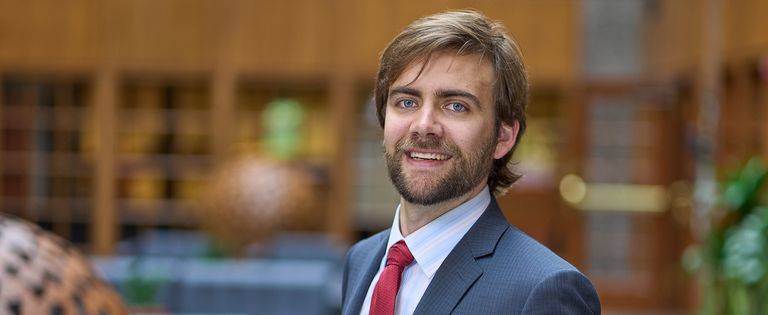Legal Alerts
5.28.24

In Trump v. United States, the Supreme Court will determine to what extent a former president enjoys presidential immunity from criminal prosecution for conduct alleged to involve official acts during his tenure in office.
On August 1, 2023, former President Donald Trump was indicted by a federal grand jury on four counts arising from his actions following the 2020 election. President Trump maintained that he could not be prosecuted for his official acts unless he was first impeached by the House and convicted by the Senate. The circuit court denied his motion to dismiss on immunity grounds, and Smith asked the Supreme Court to expedite review and bypass the D.C. Circuit. Instead, the Court deferred to the D.C. Circuit’s judgment. On February 6, the D.C. Circuit affirmed the lower court’s decision, and President Trump requested a stay of the D.C. Circuit’s ruling. Ultimately, the Supreme Court agreed to accelerate and hear the case.
During oral argument, the Justices explored whether upholding the ruling would prevent presidents from taking decisive action because of fear of prosecution following their tenure. They also distinguished between absolute and limited immunity and how extraordinary circumstances might impact a president’s ability to act under those protections.
Justices Thomas and Sotomayor questioned how to distinguish between official and private actions and where to draw those boundaries. This initiated a succession of hypotheticals evaluating: issuing self-pardons, pardoning former presidents, assassinating political opponents, and accepting millions in bribes for an ambassadorship appointment. Justice Barrett elicited that some of President Trump’s acts alleged in the indictment were likely private acts. But the Justices remained skeptical as to how the case against him is being framed.
Justice Gorsuch believed President Trump’s motive should be part of the analysis, and the Justices analyzed the impact of timing on the actions as well. For instance, they assessed the difference between actions performed as a presidential candidate versus official actions as an elected president in office.
Cautious and comical, Justice Alito raised the possibility of overzealous prosecution, saying that grand jurors would indict a ham sandwich and how uncommon it is for a grand jury to refuse to indict a case that a U.S. attorney or federal prosecutor wants to bring. Justice Kavanaugh shared this concern asking whether a creative prosecutor could pursue a case against many presidential activities because of the vague nature of the conspiracy to defraud statute. 18 U.S.C. § 371.
Justice Gorsuch captured the gravity of the Court’s deliberations saying, “We’re writing a rule for the ages.”
The case was argued on April 25, 2024. A decision is expected by the end of the term. Stay tuned for Dykema’s client alert discussing the Court’s forthcoming opinion.
For more information, please contact Chantel Febus, James Azadian, Christopher Sakauye, Monika Harris, A. Joseph Duffy, IV, or Puja Valera.






